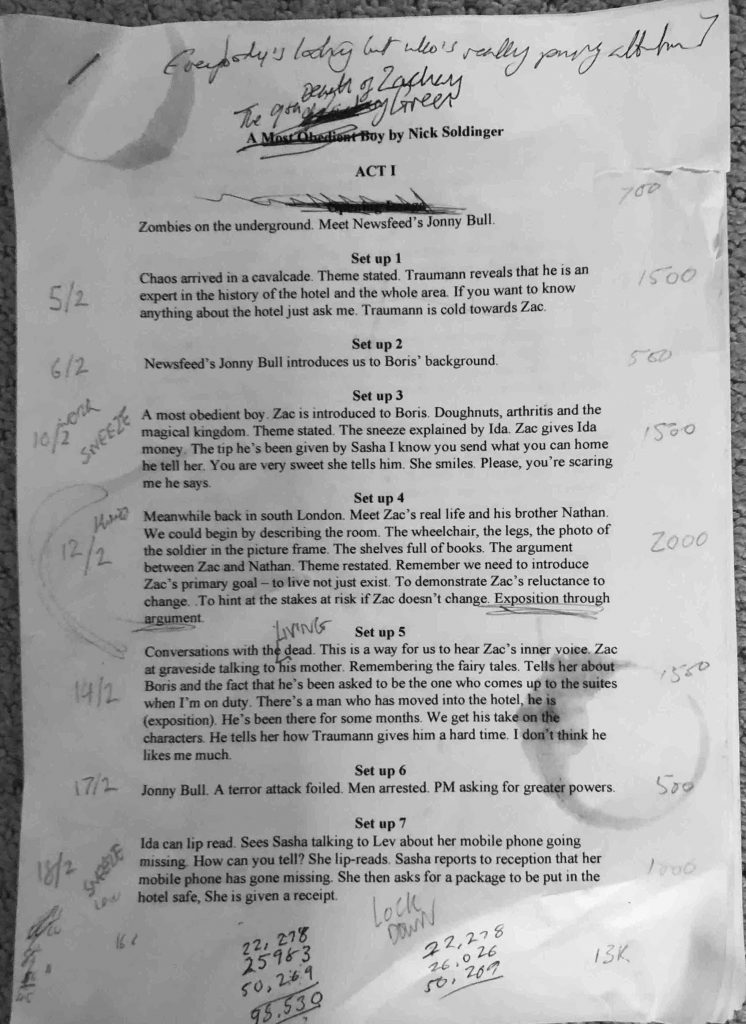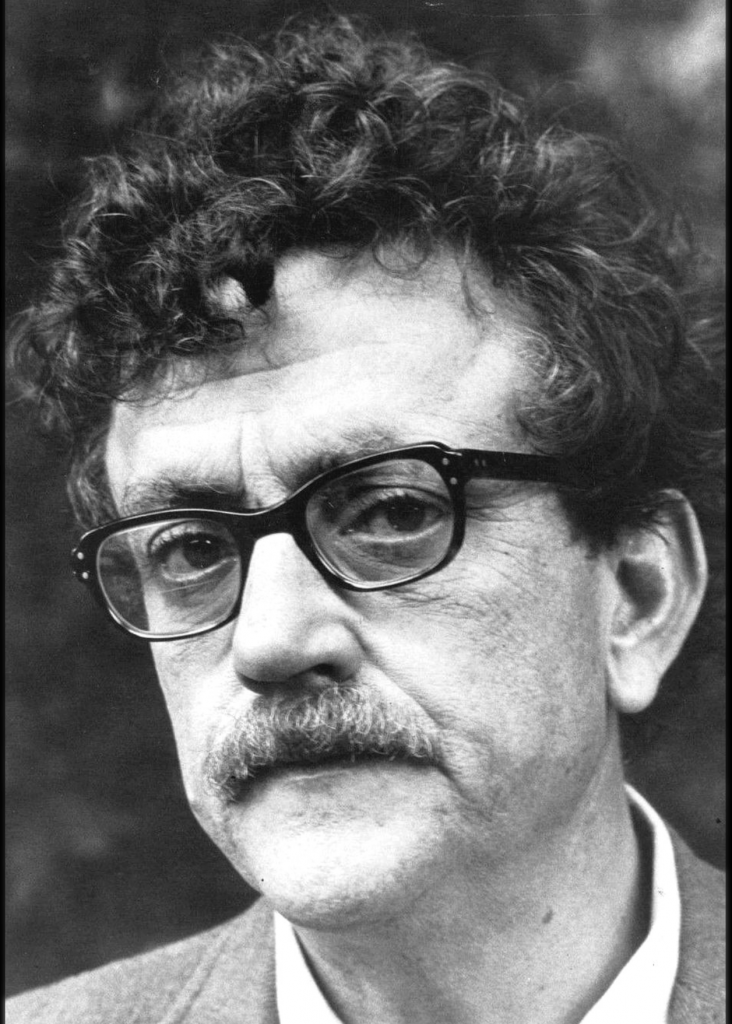EFFECTIVE STRATEGIES THAT'LL GET YOU WRITING

What is writer’s block? The short answer to that is it’s a pain in the tuchus. Anyone who’s written has endured it to some degree. As a journalist, I most commonly encounter it when I’m trying to start a piece. By contrast, when I was writing my first novel, I found that writer’s block could strike at any time and was far more tricky to overcome.
Through the course of writing my book, however, I realised that every case of writer’s block is essentially caused by the same thing, regardless of what you’re writing. It’s a fundamental lack of self-belief in either your abilities as a writer or the work you’re doing. And the good news is there are practical things you can do to overcome those feelings.
In my previous post, I discussed the problem of self-doubt I’d experienced while writing my first novel The Ninth Death of Zachary Green. I explained how I’d been pestered so frequently by a negative inner voice while working on it, that I nicknamed that voice Doubting Dick. Here, I want to dig a little deeper into that subject. I’m also going to reveal some of the strategies I used to conquer writer’s block in order to get my writing going and keep it moving.
HOW WRITER'S BLOCK AFFECTED ME
In the past, my experience of writer’s block has ranged from a simple case of being unsure about how to start a piece of writing to a deep and debilitating sense of uncertainty.
When I was writing my first novel, I experienced periods of profound anxiety about what I was doing. There were times when the very idea of writing a novel seemed somehow absurd. That what I was engaged in was not only a self-indulgent waste of time but ultimately meaningless.
These feelings often sabotaged my creativity, sometimes bringing it to a halt altogether. This puzzled me. As a journalist, I must have written a million published words. I have a wealth of experience. I’ve even won awards. Yet here I was, filled with as much self-doubt as I’d been when I was starting out over 20 years ago. What the hell was going on?
Over time, I realised that one of the reasons Doubting Dick’s voice sometimes seemed so powerful was because the idea of being a fiction writer can sound so bloody ridiculous. I mean, rather than get a ‘proper job’, one with pay and perks and pretty colleagues, a fiction writer opts to sit in a room, for long, lonesome hours, making shit up. Shit, it must be pointed out, that there is no guarantee anyone will like, buy or even read. Put like that, it’s a miracle anybody has ever written a novel.
For me, the feelings of negativity I experienced could be so overwhelming that it was like being lost in some vast empty ocean far from land. Sometimes even the words I found myself trapped with would drain of all meaning. It was unsettling. It was trippy. It was like meddling with madness. Writing really can turn you into the loneliest person alive.
THE NEED FOR STRUCTURE
Part of the problem is that a work of fiction is, by its nature, not real. It doesn’t exist, well, not until you drag it up out of your imagination. And as experienced as I am as a writer, I had no direct experience of that.
As a journalist, I’ve spent years writing about things that have really happened, about people who really exist or places I’ve really been to. I’ve almost always had a body of source material to base my stories on, too. Whether that be an interview, a press release or news clippings. And while having some of this real-world material can help you write fiction, you can’t rely on it in the same way. Because what you’re writing is a fiction. The clue’s in the name.
As well as offering a solid foundation to write from, journalism has also provided me with plenty of motivational and supportive factors down the years. Factors that have helped keep me both focused and confident. I’m usually requested to write whatever it is I write. Sometimes I’m praised when I deliver it, and I’m certainly paid. I’ve also been lucky enough to work within nurturing teams and have always written to a deadline.
As a wannabe fiction writer, I had none of these things. For the first time in my writing life, I was completely without structure or collaborators. Even during stints as a freelancer toiling away in my home office, I’d never known this kind of aloneness. It was bewildering. It was chaotic. I felt insecure and directionless – two key symptoms of my writer’s block.
I needed a solution. I had to find some structure, and fast. And I discovered it in what I came to call my ‘Four Ps’.
P IS FOR PLAN
Before I started writing The Ninth Death of Zachary Green I drew up a plot outline of the entire book. Based on a three-act structure, it essentially provided me with a scene-by-scene blueprint of all my story’s major episodes. If you’ve read my previous post, you’ll know that the cast of characters I created to carry that plot forward often refused to do what was in the outline. Instead, their traits and quirks bubbled up, forcing the story to be told in a way that didn’t always match what I’d planned.
I’d spent a lot of time developing my characters because I wanted them to be rounded, believing it would add depth to my story. While it did do this, it also brought its own set of problems and puzzles. At no point, however, did I consider abandoning my plot outline. It was too important to my armoury.
Instead, I scribbled on it, adapted it, and patched it up whenever a character blew a hole in its side. I relied on its basic structure and the certainty it gave me to get me from the beginning to the end.
In some regards, it worked in the same way as SMART goals do. It provided me with a series of regular targets or destinations to aim for that helped to keep me motivated, focused and moving. I referenced it every day that I wrote and stuck to it as tightly as my characters would allow me. It was my constant companion. Having it there with me on my writing desk reassured me that what I was doing was tangible rather than fanciful. Its dirty dozen pages, ripped, scrawled upon and coffee-stained, became something real that I could cling to whenever I felt most at sea.
P IS FOR PRACTICE
The second thing that helped me was sticking to a daily writing practice. Not only did it ensure that I maintained my momentum, but it also offered me another structure to cling to in my moments of deepest doubt.
As a seasoned journalist, I’m used to writing pretty much on a daily basis, so I approached writing my novel the same way. And by treating it like a ‘proper job’, by putting the hours in, it felt like one, too. One that I didn’t need to justify to Doubting Dick or anyone else for that matter.
In the early stages, I found that committing to a set number of writing sessions a week was the best way to organise my workload. So, I drew up a weekly timetable and populated it with 60-minute appointments with myself that I was confident I could keep.
When it was done, I pinned the timetable up on the wall by my desk where I couldn’t ignore it. I placed it next to a photo of Kurt Vonnegut that I keep there to remind me that the best writers are brave. Whenever Doubting Dick whispered in my ear that what I was writing was preposterous (which happened frequently), I’d look up. And there’d be Kurt eyeballing me, making sure I didn’t wuss out. Whatever I was writing, I told myself, could never match Kurt for sheer audacity and this gave me confidence. It was good to have the man on board.


P IS FOR PROCESS
The timetable I drew up didn’t just help to keep me on track. It provided the foundation for the very process that drove the writing of my book. Ultimately, that process required me to do three things…
1) Stick to the timetable.
2) Turn up and write.
3) Trust in the process.
And that was it. That was my process. It may sound simple but it worked and it propelled me forward. It was like a sail catching the wind.
From the start, I made an agreement with myself to be disciplined about things. I didn’t skip sessions and if I was forced to miss one because of unforeseen whatevers, I made sure that I didn’t lose it. Instead, I reclaimed it and rescheduled it. Within two weeks of working this way, the process had become my routine.
I didn’t worry about how much I wrote in each session or set myself deadlines or word count targets, either. I figured that would just pile on unnecessary pressure, particularly in the early stages when it was just me versus the blank page.
Instead, I told myself that how much I wrote wasn’t important. What was important was making sure I got something down. And whenever I found myself struggling or stuttering, rather than beat myself up or allow Doubting Dick to grind me into submission, I focussed on having fun.
P IS FOR PLAY
If I discovered anything from writing my novel, it’s that writing fiction is like making music. You need to be able to play to be any good at it. In fact, play can be your most powerful weapon when it comes to conquering writer’s block.
So next time you find yourself getting stuck when you write, try playing. Play with your words. Play with your scene. Play with your setting. Try playing with your tense or even with your narrative PoV.
Play with your characters, too. If your narrative is going nowhere, take them for a walk or put them in a car. Stick them on a spaceship or in a submarine just to see what happens. And if you end a writing session with nothing useful for your story, don’t get in a rage and delete what you’ve done. Instead, give what you’ve written a good name and file it away under ‘Ideas for future stories’. That way nothing will be wasted, including your time.
Playing this way can unlock and unblock your writing. It can show you new things in the worlds you build on the page. New places, objects or doorways will appear that you can use to ratchet up the drama, create a dilemma or develop a twist. You’ll discover things lurking in the background of your story or hidden in its shadows. Things that’ll get your characters moving, kissing or clashing.
GET WRITING!
I played with a lot of ideas when I was writing The Ninth Death of Zachary Green. Some made the final book, most didn’t. And my readers are none the wiser because the book they get to see is nothing like my (terrible) first draft or the four that came after it.
Because writing, ultimately, is all about editing. So don’t worry about getting it right first time when you face an empty page. Or seeking what Flaubert called le mot juste. Instead, just get scribbling. Just get sketching. Fill that page with words. You’ll soon learn the same truth that every writer before you has learnt. That some of what you write will be fine and some of it’ll be crap.
But that’s OK. In fact, you can take comfort from the crap stuff because the only way you get better at writing is by writing. Which makes the crap stuff necessary. It’s how you get to the good stuff. What’s more, who cares if your first attempts aren’t great? You’re the only one who’s going to see them, plus you can always fix what isn’t working in a later draft.
So don’t worry about perfectionism. And definitely don’t worry if what you’re doing seems bloody ridiculous. Because sitting in a room making shit up IS bloody ridiculous. But that’s the gig, goddammit! It’s what fiction writers do.
The Ninth Death of Zachary Green by Nick Soldinger is now available to buy in paperback and e-book.
Click here for more on how to cope with writer’s block.